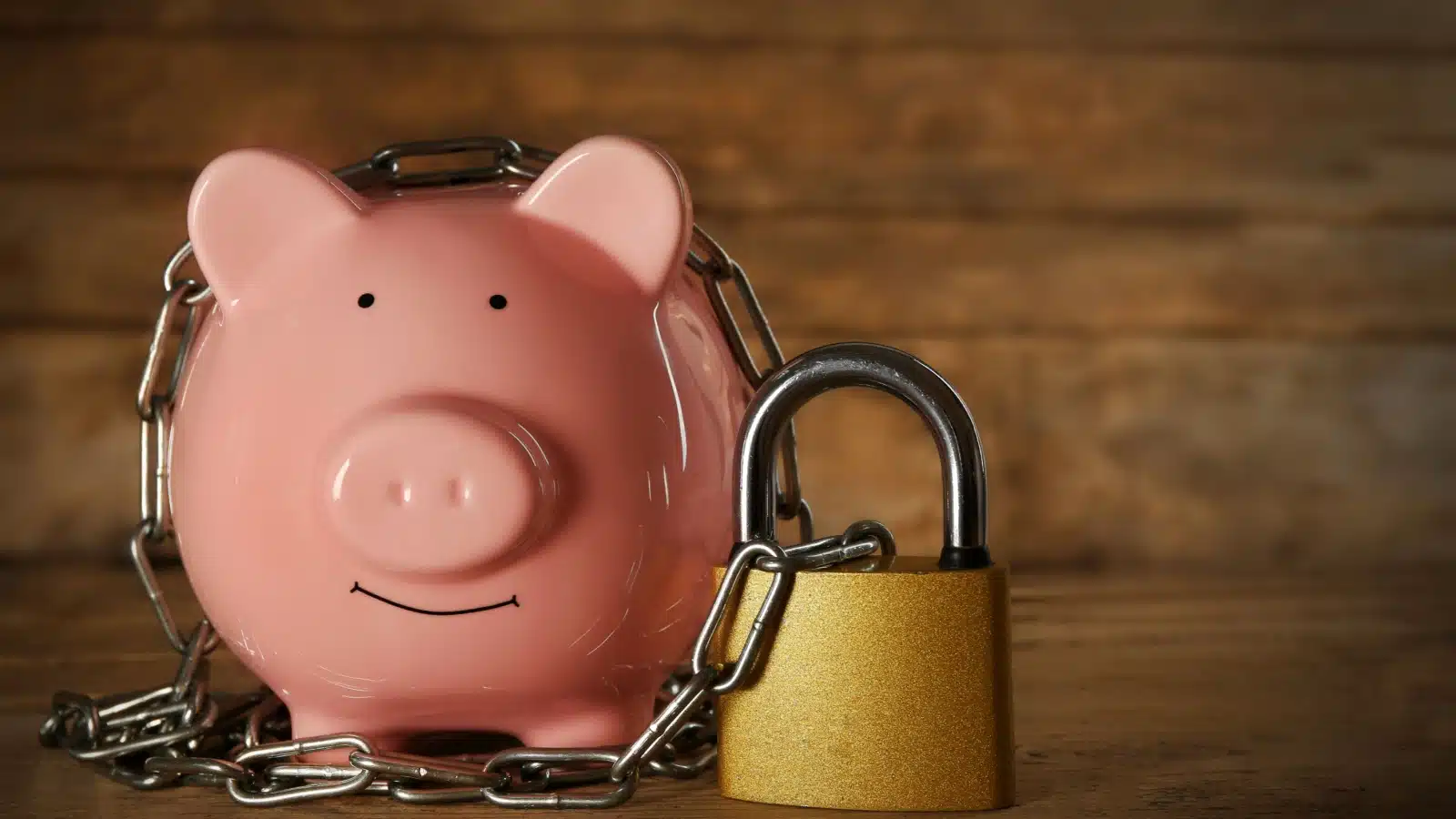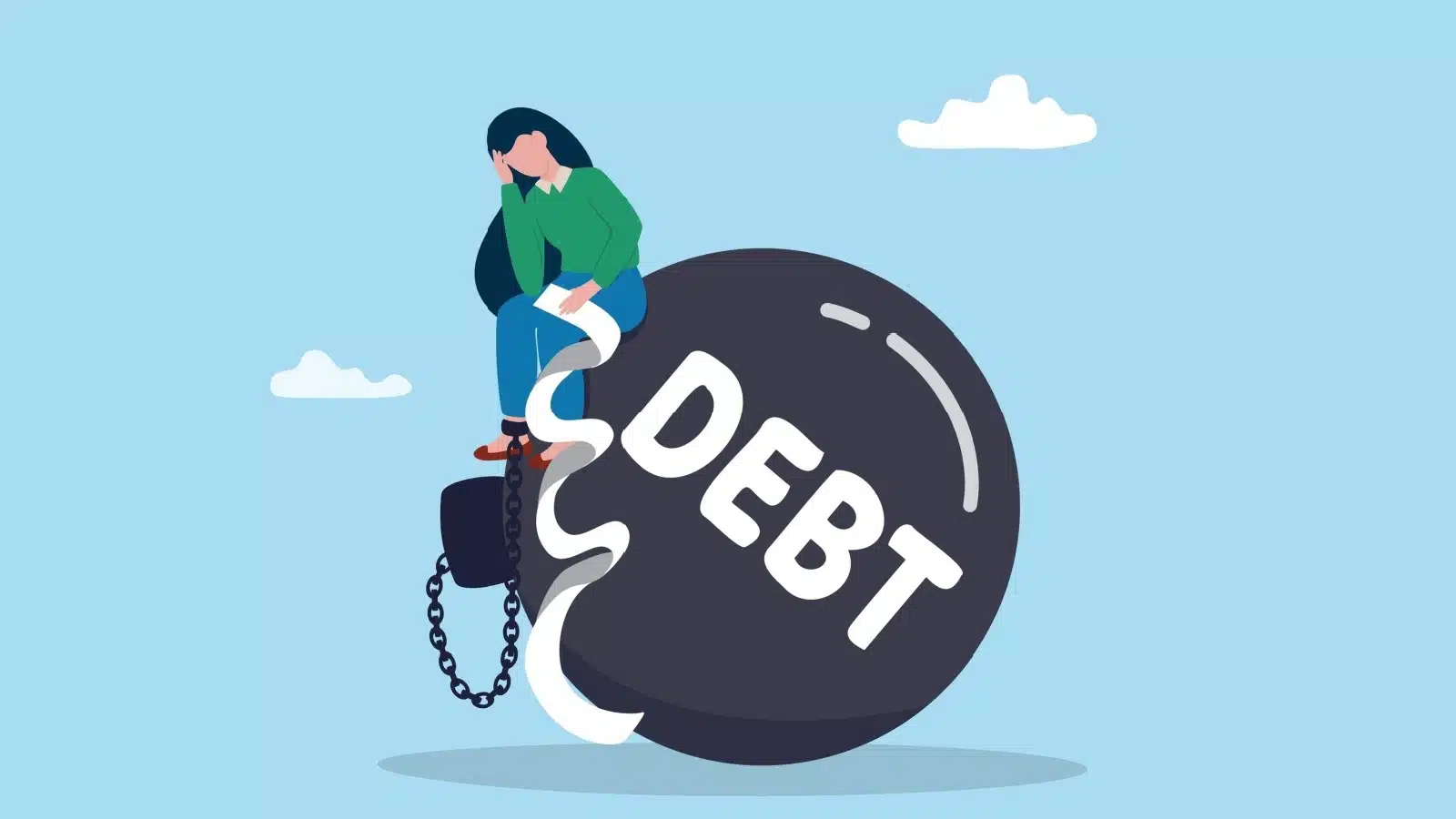4 Reasons You're Hemorrhaging Money With Tips for Fixing It
Have you been hemorrhaging money lately?
Surprise bills, special events, and stress shopping can all lead to out-of-control spending, making it feel like money flees from our pockets whether we want to or not.
When we start hemorrhaging money to such an extent, it feels like we lose control of our budgets and spending.
Here’s how to get it back.

In a perfect world, you’d stop the bleeding with an emergency fund and a sinking fund. These special savings accounts prevent life events from bleeding you dry.
However, we don’t live in a perfect world. It’s unrealistic for me to tell you to stop hemorrhaging money by using your sinking fund if you don’t have a sinking fund.
Here’s what you can do to stop hemorrhaging money when you don’t have spare cash.
Hemorrhaging money makes you feel like you’ve lost control. The first step to regaining that control is to catch your breath. The stress of overspending can lead to more overspending. Experts call this phenomenon emotional spending, but it’s commonly referred to as retail therapy.
Emotional spending is a coping mechanism that helps you feel more in control of your money, but in reality, it does the opposite.
Instead, find healthier, more productive ways to handle stress. Start with self-care ideas that can help you reset at home. A relaxing bath, journaling, and exercise can be healthy outlets for stress that don’t affect your pocketbook. Consider redirecting to one of these activities when you feel like hitting the mall.
Now that you’ve caught your breath and feel better about yourself, you can focus on fixing the problem.
The next step is to identify the reasons why you are overspending.
We can help. As a life coach, I’ve identified some of the most common reasons people feel like they’re hemorrhaging cash. However, everyone’s situation is unique, so it’s okay if your specific problem isn’t listed.
Most of these tools can be tweaked slightly to work for any reason why you might be hemorrhaging money.

Here are four common reasons people hemorrhage money, along with ways to stop the bleeding on each one.
Hey folks! Transparency Disclosure- Some of the links in this article are affiliate links. That means I’ll receive a small commission if you decide to click on it and buy something. Don’t worry, it doesn’t cost you anything extra!
Surprise bills and financial emergencies are the top reasons most people feel they’re hemorrhaging money.
It’s never just one.
Emergency after emergency rears its ugly head, and it feels like a new fire pops up the second you extinguish an old one.
I was in this boat a few years ago. In a matter of months, I had to spend four hundred dollars to fix a heating wire, another five hundred to fix a problem with insulation, and a terrible freak accident with my cat that cost nearly four thousand dollars. The entire year felt like a giant financial emergency, destroying my attempt at a no-spend year.
Unexpected expenses are the bane of our existence, but there are ways to either plan for them or mitigate the damage they do.
The best defense against hemorrhaging money in an emergency is an emergency fund. An emergency fund holds cash, so it’s available when needed. Having this buffer will help you feel in control in these stressful situations.
Let’s be realistic, though. If you feel like you are hemorrhaging money due to emergencies, you probably don’t have an emergency fund, or you’ve used it all up.
I know it sounds challenging to start one at times like this, but it is the best way to prevent more hemorrhaging in the future. Open an account today and start putting a few bucks in each paycheck. The following emergency will be less stressful and much easier to manage.
Hopefully, you aren’t at that next emergency yet, so you have a bit of breathing room. You need to figure out how to pay off the debt you incurred and boost your emergency fund to prevent a similar situation in the future.
Now is the time to cut spending in other places. Cheap out on groceries for the next few weeks, skip the date night, and bring lunches to work.
There are thousands of ways to save money, and we’ve written about a ton of them. Use some of our tips to find ways to cut back:
The money you save can pay off the emergency and build your fund to weather future storms.
As a final resort, use a credit card to pay for the emergency and then consolidate the credit card debt into a personal loan with a company like Upstart.
Upstart offers lower interest rates than most credit cards, so you will save money in the long run. Check to see if you qualify!

Sometimes, lots of stuff pops up all at once. And yeah, maybe we knew about some of them and should have planned better, but perhaps some of them crept up on us.
It happens.
After the fun of Halloween and Thanksgiving, we’re often surprised to find Christmas right around the corner. Although these holidays occur at the same time every year, they still sneak up on us.
The same may happen with birthdays, anniversaries, or other special events. We may forget a niece’s birthday, get a last-minute wedding invite, or remember the annual RV show is next week.
What’s the point of living if you can’t spend money on these crucial activities?
The best way to stop special events from sneaking up on you and eating all your money is to plan for them. Mark them in your calendar with reminders, and put money aside for them with each paycheck.
If you haven’t yet, open up a sinking fund, a separate bank account where you save for specific things. I have a sinking fund for both travel and home repairs.
Unfortunately, I didn’t have enough in either of those funds to cover all the travel and home repair expenses, but the little bit I had helped save my emergency fund.
We don’t always know about special events in advance; sometimes, even when we do, they sneak up on us.
One way to ease the burden of special events is to cut back elsewhere. The money-saving tools we listed above will help you find extra money in your budget for fun activities and celebrations that pop up over the year.
If you are really struggling, you can also skip the event. Although as social creatures, weddings, parties, celebrations, and get-togethers are essential, sometimes we must take a hard look at our finances and decide not to attend.
Consider whether you’d have to dip into investments or rely on credit to attend. You may also want to prioritize events based on their importance to you, your family, or your life goals. Perhaps you should go to your sister’s wedding, but you can skip the yearly art festival with friends.
People who genuinely care about your well-being will understand if you can’t make every event.

A significant way we hemorrhage money is through rampant, uncontrolled shopping. Sometimes, when we feel bad about ourselves, we want to buy all the things. And sometimes, when we are hemorrhaging money in other ways, buying everything makes us feel more in control of our spending.
It may not make logical sense, but it’s a real experience for many people.
To prevent yourself from stress shopping, you must find healthy ways to relieve your stress. We touched upon some excellent ideas for stress relief and self-care earlier, so be sure to check out those resources.
You can also prevent overspending by avoiding triggers. Don’t go to the mall, turn off your Amazon app, and skip the snack store.
A final option is allowing yourself some wiggle room. Give yourself some “fun money” in your budget, so you can enjoy things like shopping and eating out, but won’t overspend. Only take the fun money with you and leave the credit cards at home.
These protections will help prevent you from overspending.

Families often overspend because they are over-extended. Life is expensive, and sometimes there is not enough money to pay all the bills. Student loan debt, the rising cost of housing, and inflation eat into budgets, forcing families to rely on credit to survive.
It is an unfortunate reality for millions of people.
Budgeting is your best friend in this situation. Sometimes, there are things you can cut back on to save a few bucks – you can look for ways to save at the grocery store, downsize your house, or cut non-essentials like cable. But sometimes, you’ve cut everything there is to cut and still can’t make ends meet.
Increasing your income can help in situations like this. You can pick up a side hustle such as designing T-shirts, writing for HubPages, or even online bookkeeping. Drive for Uber or deliver food with DoorDash.
You could also try picking up extra shifts at work or looking for a job with higher pay.
Increasing your income isn’t easy, but sometimes it’s the only option to stop the bleeding.

An unfortunate side effect of a few months of hemorrhaging money for whatever reason can be tons of debt.
And then it becomes cyclical.
Due to the original issues, you are now bleeding money to pay the credit card bills that have stacked up. Then, if something else pops up, you get into even more debt. It’s a vicious cycle of emergencies, debt, repayment, and crises that feels impossible to escape.
We’ve already talked about a few things you can do to break free, such as saving more money or increasing your income.
A last resort option is a debt consolidation loan. Upstart is a fantastic company for consolidation loans. They look past your credit score and see you as an actual person, not just a number. They also have much lower rates than most credit card companies, so you will save a ton of money on interest payments. Click here to check them out and see if it’s right for you.
The worst thing about hemorrhaging money is feeling out of control. It may not seem like it now, but you can rein in the spending and take charge of it.
The advice offered here will help regardless of your situation. So take a step back and breathe. Then, identify the cause and take steps to regain control of your money and destiny. You’ve got this!












